
Michael Abiodun
Following the robbery attack on one of the branches of First Bank in Ondo State on the April 8, details have started emerging on the circumstances surrounding the bloody attacked.
Recall that just like one of the action scenes of a Hollywood movie, dare-devil armed bandits had storm Idoani, headquarters of Ose Local Government, where the robbers for over one hour held the town by the jugular as they unleashed terror in a bid to rob the bank.
Days after the incident which shook the entire state, the trails of tears and sorrow left behind by the gunmen still pervades the community’s atmosphere as many find it difficult to comprehend that their loved ones are no more.
At the end of the terrifying gunshots, the attack left seven people dead; four bank officials, including the Operation Manager of the bank, Sunday Akindele; two customers and a police officer. One of the victims was said to have died in the hospital.
Unearthing what could have led to the deadly attack, sources revealed that it might not be unconnected with a tip-off that the sum of N25 million was to be deposited in the bank’s vault on the day of the attack.
According to one of the sources who craved anonymity, the money was being expected in the bank which was to be brought in by a bullion van before the robbers struck.
“It cannot be waved off that the robbers did not know that such amount was due for arrival, going by the time they attacked.
“But they (robbers) got to the bank before the arrival of the bullion van which had made a decision immediately it got wind of the attack.
“There’s the possibility that, that was what infuriated them to have killed those on that sad and terrible day.
Another source also emphazied that the gunmen must have acted on a tip off, particularly within the bank.
“That there is an informant involved should not be ruled out.
“They acted based on the information someone gave them and such privileged information can only come from within.
“The only appeal is that the security agencies working on the case should endeavour to get to the root of the attack and all those involved should be made to pay for their dastardly act.”
Meanwhile, the State Police Command has continued to assure residents that the culprits will be apprehended just as police source confirmed to DAILY POST that more arrests have been made in connection with the robbery.
The Nation learnt that Aliyu was cut with a machete by his older brother for refusing to agree to the sale of farm products to offset a N100,000 loan.
The suspect claimed he borrowed the sum of N100,000 from a friend of his and gave it to his late brother to renovate his house in the same area, adding that he promised the owner of the money that he would pay back after harvesting their farm produce.
The suspect said his younger brother had refused that they sell the farm produce to offset the loan.
Idris, out of anger inflicted machete cut on his younger brother leading to his death.
“I and my brother have been living and farming together since our parents gave birth to us. I borrowed N100,000 from a friend and gave it to him to fix his house, yet, he refused that we should pay back the money .I begged him to sell our farm produce to settle the man (lender)he didn’t listen to me.
“After the harvest, I told him the need to settle the person I borrowed the money from, he refused to listen to me and insisted that we were not going sell any farm produce to that effect. I lost my temper, pulled my machete and inflicted deep cut on his neck which resulted to his death.
“I killed my brother due to the pressure from the person I borrowed the money from and after my brother refused that we should sell our farm produce to pay him off.”
The suspect who is married with two wives and 13 children regretted killing his brother. He attributed the incident to the work of the devil.
”My life is finished, I have killed my only brother whose wife will give birth any moment from now; I am ruined forever,” Aliyu lamented.
The spokesman of the state police command, Muhammad Abubakar who confirmed the incident said operatives found the deceased lying in a pool of his blood in his residence when they received the report and went to arrest the suspect.
Abubakar said the matter would be charged to court after investigation.
FacebookTwittergoogle_plusPinterestLinkedInWhatsAppEmail
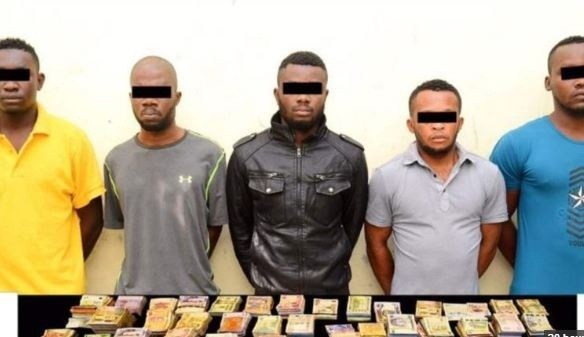
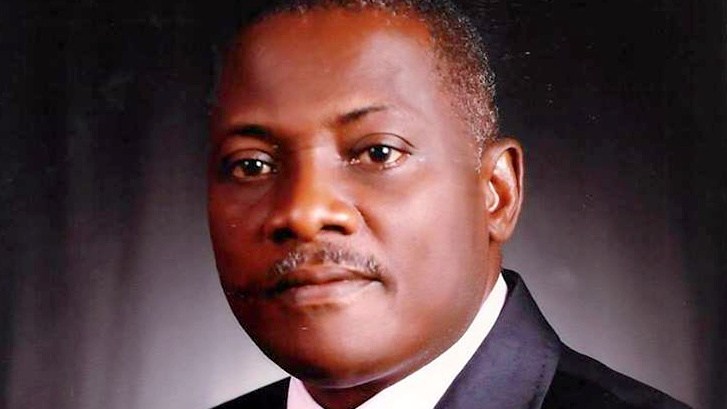
Chief Ayo Opadokun, an elder statesman and Afenifere chieftain, has revealed how Asiwaju Bola Ahmed Tinubu saved Yinka Odumakin’s life.
According to him, Tinubu who was the governor of Lagos as at that time ensured that Odumakin got the best treatment in India.
“Immediately, she came in, Governor Tinubu invited his Commissioner for Health and his Commissioner for Finance to go and do whatever they had to do in order to get both Odumakin and his wife visa and other necessary things needed for them to visit India.”
“I was told by the magnetherapist that they will nothing less than N2million for the whole treatment. And that was exactly what Governor Tinubu did and Odumakin travelled a week thereafter. He was the one who told me his experience in India that out of the five doctors, it was only one that said let them open the hand first.”
“The other doctors were asking the wife to sign that they will need to amputate the hand. But one of them insisted that they should first of all open the hand, perhaps maybe not all the two bones had been affected.”
“Fortunately for him, only one of the bones had been affected and the surgery was successfully carried out and the hand was not amputated. That is why till today, he cannot stretch the hand. But what do we see today? There are no evil things Odumakin cannot say about Tinubu and Opadokun. Let his conscience be the judge as he is reading this. Do we deserve such from such a man? That is to show how ungrateful and mercenary that young man is.”
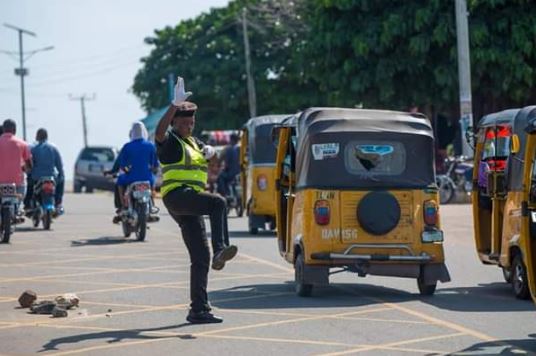

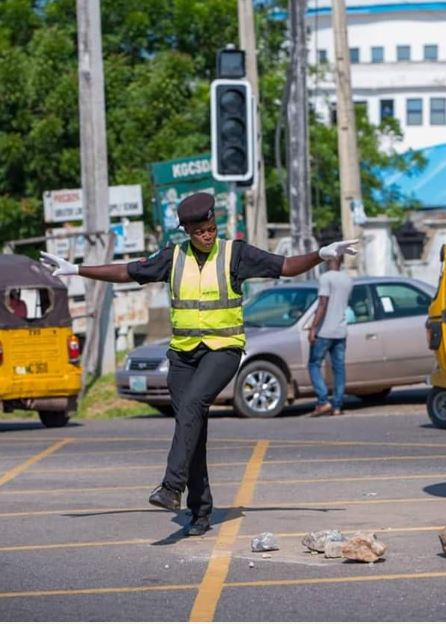

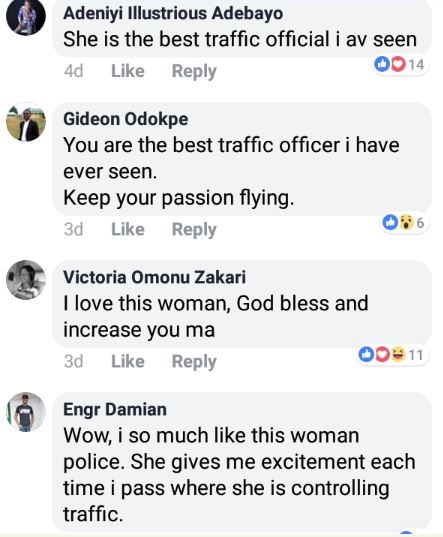
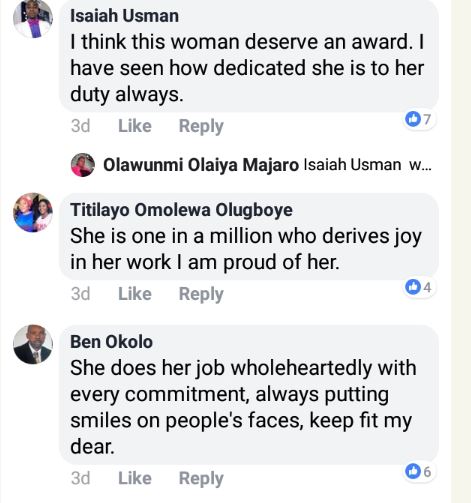
The withdrawal of the United Nations Mission in Liberia after 14 years in the country, the signing of the African Continental Free Trade Agreement, progress in reforming the African Union (AU) and the warming of relations between Ethiopia and Eritrea after two decades of tension were some of the major positive developments in Africa in 2018.
In a speech to the 2018 African Dialogue Series, United Nations (UN) Secretary-General Antonio Guterres described Africa as ‘driving its own agenda’ and ‘a continent on the move and on the rise’.
Yet despite these positive developments Africa is still the continent most affected by conflict. Data from the Armed Conflict Location and Event Data Project of the University of Sussex shows that the continent experienced at least 1 495 incidents of conflict-related violence between January and October 2018, with 21 772 associated deaths reported.
The Horn will hinge on Ethiopia
In the year ahead, developments in Ethiopia will have the most impact on peace and security in the East and Horn of Africa. Despite the encouraging developments since Prime Minister Abiy Ahmed took office in April 2018, the impact of the loosening of the current regime’s hold on the country’s political and security system will be tested in 2019.
Developments in Ethiopia will have the most impact on peace and security in the East and Horn of Africa
The increasing need to address challenges at home is also likely to reduce Abiy’s active role in regional matters. This could see the tripartite arrangement initiated by the leaders of Ethiopia, Eritrea and Somalia strengthened. Meanwhile, the successes of the reforms in Ethiopia will place enormous pressure on Eritrea to reform as well.
Without Ethiopia taking a clear lead, Sudan and Uganda could step up to the plate and cooperate on various peace and security issues. Yet they will also compete when it comes to safeguarding their interests, especially regarding the implementation of the revitalised South Sudan peace agreement.
No guarantee of peace in South Sudan, Somalia
The security situation in South Sudan will remain precarious in 2019. Tensions on a local level over unresolved underlying issues will continue to cause conflict in many parts of the country.
Opposition groups are likely to splinter, leading to possible political re-alignments in the run-up to or during the transitional period. Mistrust between President Salva Kiir, opposition leader Riek Machar and Vice-President General Taban Deng will be the biggest threat to the implementation of the revitalised peace agreement, signed in September 2018. While the situation in the country is likely to improve, the conflict will not end in 2019.
In Somalia, the progress made these last few years will be tested in 2019. Two main questions will have to be answered: will the country be able to implement milestones in preparation for the 2020/21 elections, and will gains be sustained in the fight against al-Shabaab?
Developments in the Gulf will also have to be watched, as that could further impact political developments in Somalia, particularly in terms of the already frosty relationship between the federal government and member states.
Cameroon will be a thorn in the side of Central Africa
The eastern DRC and the CAR will remain major crises in Central Africa. The crisis in Cameroon is, however, likely to be the region’s new big problem. Despite the worsening of the crisis in 2018, there were few regional and continental diplomatic efforts to address it. The PSC did not place Cameroon on its agenda the entire year.
This could change in 2019, as silence from the AU becomes untenable. As such, a robust continental strategy is essential to prevent the crisis from further deteriorating.
According to an October 2018 report by the African Center for Strategic Studies, the activities of terror groups in the Sahel tripled between September 2017 and September 2018.
Institute for Security Studies experts recently warned that violent extremism could be spreading to West Africa’s coastal regions. Countries in the Gulf of Guinea, particularly Ghana, Togo, Benin and members of the Mano River Union, will be at greater risk. This comes despite various counter-terrorism initiatives in the Sahel, which will see the groups continue losing territory to government forces. Yet these groups will keep on adapting in 2019 by spreading into new areas and targeting civilians.
Popular protests on the rise
Across the continent, beyond the traditional peace and security threats, popular protests are on the rise. These are driven by the push for greater political and economic inclusion. The rising cost of living and growing unemployment fuel protests in otherwise stable countries such as Uganda and South Africa, and in North African countries such as Tunisia.
In Uganda, for instance, popular musician turned politician Bobi Wine is likely to continue shaking up the country’s politics, despite efforts to silence him in 2018. Yoweri Museveni’s regime is increasingly being contested by a youthful population hungry for change.
These protests are expected to continue if governments do not find adequate responses to people’s grievances.
Given the AU’s efforts to position itself as relevant to African citizens, the need to take charge of challenges in 2019 is an opportunity that should not be missed.
The PSC could, firstly, up its engagements on existing crises in the various regions. This can be achieved through the deployment of regular field missions to hotspots, facilitating regular briefings by the AU Commission and independent experts, and regularly featuring specific crisis areas on the PSC agenda. This will enable the PSC to follow the evolution of conflicts and thereby position it to respond appropriately and in a timely manner. Increasing the number of field visits to crisis areas will also raise the AU’s visibility in those areas, in line with its commitment to be relevant to citizens.
Secondly, the PSC could make regular use of the good offices of the AU Commission chairperson and the commissioner for peace and security to deploy into specific countries at crucial times, monitoring progress and encouraging behavioural change. This is particularly useful in countries where conflict parties have agreed to specific roadmaps.
Finally, the PSC should be ready to apply pressure in cases of clear impunity by spoilers. This can be through either naming and shaming or the use of appropriate sanctions.
Credit link:https://issafrica.org/pscreport/psc-insights/human-suffering-underlines-the-urgency-to-do-more-in-2019
Africa’s foremost diplomat, Kofi Annan, was one of the biggest human export from the continent.
Aside from being the seventh Secretary-General of the United Nations for nine years (1997 to 2006), the late Ghanaian was one of the founders of the Global Fund. The funding mechanism is now the world’s largest financier of AIDS, Tuberculosis, and malaria prevention, treatment, and care programmes.
Having just won the Nobel Peace laurel, Mr Annan at a summit of African leaders in April 2001 in Abuja, Nigeria made the first contribution by donating his $100,000 award prize to the Fund.
This prompted the UN General Assembly a month later to endorse the creation of a Global Fund (GF) to fight HIV/AIDS, Tuberculosis and Malaria. The fund was formally created in 2002. Between then and 2016, more than 51 donor governments pledged $38.5 billion and paid $37.3 billion.
Mr Annan had a vision of creating a pool of funds to reach some of the world’s poorest with heavy disease burdens, especially, Africans.
Despite the billions in aid money from Global Fund for over a decade, Africa, however, is still dogged by disturbing health statistics.
This is partly because corrupt and incompetent officials undercut progress in health management in the continent.
Auwal Musa, an anti-corruption activist, said the rampant fraud is due to the absence of accountable budgetary process and lack of legislative oversight by countries benefitting from the funds.
PREMIUM TIMES reviewed a Global Fund audit report that covered the period between January 7 and December 17. The report revealed how aid money disappeared in the hands of corrupt officials in some African countries.
Seven countries top the list of nine indicted of fraud and incompetence in the 2018 ‘audits and investigations’ from the Office of the Inspector-General (OIG), an independent arm of Global Fund.
The top seven are Mozambique, Guinea, Zambia, Kenya, Central African Republic, Nigeria and the Kingdom of Eswatini (formerly Swaziland).
Though investigations for each country were detailed in separate reports, they all revealed a similar pattern of “fraud, coercion, collusion, administrative lapses, inefficiency, bad or no accounting, and non-compliance with grant agreement” which dates back three to four years.
Inside the Report – ‘The Seven Offenders’
Zambia – Warehouse theft
Warehouses controlled by Zambia’s health ministry were robbed of vast quantities of drugs paid for by aid between 2014 and 2016, the OIG report last April revealed.
Officials are alleged to have been involved in the purchase of the health products, provided by other donors, “stolen” from the warehouse of Medical Stores Limited (MSL), a government distributor of health products.
The investigation identified significant unexplained stock losses of Global Fund-financed health products totaling $1.06 million. The losses, which were neither effectively investigated nor reported to Global Fund, comprised HIV test kits, and malaria drugs among others.
Many of the stolen drugs were found in commercial vendor shops in Zambia and its neighbouring country, DR Congo, during a sponsored market survey, an indication of drug pilferage.
Actions taken: Based on findings, arrests were said to be made through Global Fund funded multi-agency national task team.
There was also recovery of an appropriate amount of the loss ($1.6 million) from the principal recipient – Zambia’s Ministry of Health.
Guinea – Falsification of data and costs for HIV survey
Guinea, a French speaking nation, is a west-coastal country in West Africa.
Made public last October, OIG investigation in the country found that a local NGO called SIDALERTE falsified survey data and costs.
SIDALERTE was contracted in 2015 by Guinea’s National AIDS, the principal recipient, to conduct an Integrated Biological and Behavioral Surveillance (IBBS) survey.
The survey was intended to update core HIV behaviour and prevalence indicators among at-risk population groups, and to provide an information base for the mid-term evaluation of Guinea’s 2013-2017 national AIDS strategic framework.
The country, however, fell short of its planned number of survey participants and HIV tests in some regions because about one quarter participants were fictitious, and had been created to cover gaps in numbers of survey participants by SIDALERTE.
The implications of the data falsification reached beyond the financial costs. The report said the programme’s progress was misrepresented.
Actions Taken: SIDALERTE’s was asked to pay back the total contract amount, $114,366.
Nigeria – Misappropriation of funds
The national coordinator of the Civil Society for the Eradication of Tuberculosis in Nigeria (TB Network) orchestrated a scheme to misappropriate funds amounting to $51,038 from salaries and allowances paid to other employees over a 14-month period (July 2016 and September 2017).
TB Network is a sub-recipient of Global Fund grants in Nigeria.
PREMIUM TIMES last September published a report on the OIG investigation revealing how the national coordinator allegedly colluded with the former finance manager and a programme internal auditor in running the fraudulent ‘scheme’.
An additional $10,750 from Global Fund grant salary disbursements were also siphoned as authorised salary payments to five network employees over a two-month period, before these employees began their jobs at the network in September 2016.
Actions Taken: Recovery of $64,000 as non-compliant expenditures.
Central African Republic – Theft, leakages of medicine purchased by Global Funds
Medicines worth $198,334, bought from two grants – malaria and TB/HIV, were lost due to theft and leakage in the Central African Republic (C.A.R.) over a period of 17 months (January 2016 to May 2017).
This report was made public last January.
The loses primarily occurred at the central warehouse used by the principal recipient (PR), the International Federation of Red Cross and Red Crescent Societies (IFRC).
C.A.R. is a country of 4.6 million people that has gone through periods of conflict for more than 30 years. On Transparency International’s Corruption Perception Index, the C.A.R. ranks 149th out of 180 countries. The public sector is perceived to be highly corrupt.
Actions taken: Recovery of $198,000. Key warehouse staff members believed to be involved were arrested.
Eswatini (formerly Swaziland) – fraudulent diversion of funds
In the Kingdom of Eswatini, OIG investigated programmes implemented by Family Life Association of Swaziland (FLAS), a Global Fund Sub-recipient for HIV/TB grant.
The report made public last August found that FLAS Project Finance Officer fraudulently diverted $26,701 of Global Fund grant funds between 1 June 2016 and 30 April 2017. He did this by making improper transfers through FLAS’s mobile money account into his own personal account as well as to other unauthorised accounts.
Some of the funds that went into his personal account ($6,081, or 17 percent) went into payments – outside the grant programme – to community facilitators, outreach workers, trainers, and other beneficiaries who had no formal contracts with FLAS. The vast majority of these funds ($20,620) was used by the Finance Officer for personal reasons.
Actions taken: Recovery of misappropriated funds.
Kenya – Fraud in Training Activities
The OIG investigation made public last February revealed how officials falsified figures of trainings, events and meeting attendees paid for with aid money. About $62,557 in non-compliant expenditures of the TB grant were identified.
There was no evidence that a number of people (120) participated in these events; and the OIG found evidence that a number of people (17) had received per diems although they had not attended any activities.
The principal recipient for Grant KEN-T-TNT was the National Treasury, but the implementing agency was the National TB, Leprosy and Lung Disease Program (NTLDP), part of the Ministry of Health (MOH).
Actions Taken: Kenyan government agreed to impose “disciplinary measures on two employees and to recover funds from them”, the report noted. “Up to the time the investigation report was prepared, $11,932 had been recovered.”
Mozambique – Misappropriation of fund
OIG in investigations published last November accused the Executive Secretary of the Mozambique Country Coordinating Mechanism (CCM) of embezzling $22,593 from Global Fund in 2016 and 2017.
The CCM funding recipient, Fundação para o Desenvolvimento da Comunidade (FDC), approved these fraudulent expenditures and a further $3,427 of unsupported payments was submitted by the Executive Secretary.
Actions taken: Based on the report, the CCM executive secretary was dismissed.
Implications of OIG report on African Beneficiaries of Aid Money.
How Countries React
Although the OIG proposed sanctions such as repayment of mismanaged funds and noted arrests, suspension and termination, PREMIUMTIMES sought reactions from the seven countries involved in the allegations.
Apart from Nigeria, governments (mostly ministry of health) of the other six coutries are yet to respond to official emails sent to them seeking clarification on how they did over the allegations by Global Fund.
Nigeria’s minister of health, Isaac Adewole, also did not return or respond to text messages to his phone.
However, the National Secretary of TB Network, a sub-recipient of the TB grant for Nigeria, Obatunde Oladapo, spoke to this newspaper on the issue.
Mr Oladapo said the OIG report and allegations were accurate. But he said he was not among those indicted in the fraud.
The official said the organisation embarked on restructuring following the report of the investigation.
He said one of the measures taken was to appoint a member of the National Steering Committee to oversee the project of the Global Funds programmes of the network.
How Global Fund system encourages fraud
The OIG in summary of its 2018 audit presented at the 40th board meeting of the Global Fund last November noted a reduction in large cases of fraud compared to previous reports.
He said this was because of financial controls and instituted safeguard measures.
However, the misappropriations recorded could be traced to weak oversight by the governments of benefitting countries which is encouraged by the Global Fund design.
The Global Fund is a financing mechanism rather than an implementing agency. It is a pool where countries, public and private institutions donate money for disbursement according to HIV, TB and malaria burden of countries.
From 2001 through 2016, the largest contributor by far was the United States, followed by France, UK, Germany, and Japan.
The Global Fund typically raises and spends funds during three-year “replenishment” fund-raising periods. Its first replenishment was launched in 2005, the second in 2007, the third in 2010, the fourth in 2013, and the fifth in 2016.
Programmes are implemented by in-country partners such as ministries of health, while the Global Fund secretariat, which staff only have an office in Geneva, monitors the programmes.
Implementation is overseen by Country Coordinating Mechanisms (CCM) and stakeholders that need to include, according to Global Fund requirements, a broad spectrum of representatives from government, NGOs, faith-based organisations, the private sector, and people living with the diseases.
Many have raised concern the susceptibility of this system to fraud and conflict of interest, as some stakeholders represented on the CCM may also receive money from the Fund, either as grant recipients or contractors.
In January 2011, the Associated Press reported vast corruption in some programmes financed by the Global Fund, citing findings of the OIG that up to two-thirds of funds in some of the reviewed grants were lost to fraud.
Previous reviews of grants, the report said, had shown substantial misconduct in some programmes, lack of adequate risk management, and operational inefficiency of the Global Fund.
Cases of corruption were also found in several African countries such as Mali, Mauritania, Djibouti, and Zambia.
Germany and Sweden were among top contributors that at the time (2011), blocked any financing until the corruption problems were resolved.
Other cases of abuse of funds, corruption and mismanagement in a series of grants forced the Global Fund to suspend or terminate the grants after such dealings became public in Uganda, Zimbabwe, Philippines, and Ukraine.
In February 2011, the Financial Times reported that the Global Fund board failed to act previously on concerns over accountability, including on the conclusion of an external evaluation in 2009 that criticised the organisation’s weak procurement practices.
Africa: Looting Galore
African countries slammed in the 2018 audit had been exposed of abusing Global Fund aids in previous reports.
It, however, did not stop the corrupt officials in 2018 as their governments would rather secretly refund the loot than take decisive action.
Nigeria, which has a Global Fund commitment of more than $1.4 billion since 2003, with over $800 million disbursed between 2012 and 2016 (HIV/AIDS $545m, malaria $708m and TB $155m), is one of such countries.
Two years before the 2018 report was released, Nigerian officials were accused of stealing funds meant for HIV/AIDS campaign by misrepresenting or inflating the amounts paid to hotel venues and other expenditures.
Nigeria’s Auditor-General, Anthony Ayine, in July reprimanded the National Agency for the Control AIDS (NACA) managing the HIV fund for refusing to shed light on how the fund was used.
Even before that, Sahara Reporters in 2012 published a report detailing how seven NGOs misused funds from 15 grants, amounting to $682,149,515, provided between 2003 and 2009 to the country. This, the report said, put Nigeria in danger of not getting subsequent grants.
Following the development, Nigeria’s Independent Corrupt Practices Commission (ICPC), vowed to probe the NGOs but nothing was heard of that probe since then.
Rasheedat Okoduwa, ICPC spokesperson, could not be reached on phone. She is yet to respond to text messages seeking update on the probe the commission said it commenced in 2012.
Also in 2012, Kenya missed about $67 million supposed grant for fighting Aids, malaria and TB because of fraud and mismanagement of Global Fund’s money, according to Daily Nation.
Even though African governments indicted of fraud have not made progress in bringing culprits to book, Global Fund appears to be appeased once refunds of misused funds are made.
Amidst allegation of abuse of TB grant detailed in the 2018 audit which is still unclear how it was resolved, Nigeria last month received a fresh $29million grant for TB interventions.
“Refunding stolen funds and allowing people who looted the fund to walk free is not a solution”, said Mr Musa, the Executive Director, Civil Society Legislative Advocacy Centre (CISLAC). “It is deception!
“At Transparency International, we did a whole report on health and corruption and we have found a lot of public officials mismanaging this global health fund in Nigeria. Unfortunately, the government has not made any bold step to arrest and make those people account for the money they have actually embezzled. In Africa, we allow impunity to thrive.”
Lanre Suraju, another anti-corruption campaigner, gave a different view. He said even the so-called funders and international NGOs may also be culpable of fraud.
“It can be easy for them to easily accuse countries that are already in the toga of corruption and get away with it.
“Ngozi Okonjo Iwela (Nigeria’s former finance minister) refunded money bags to GAVI then in her capacity as a minister only for her to leave office and become board chairman at GAVI. So you can see some elements of payback for job well done and conflict of interest.
“These organisations in most cases are not the original owners of the money so it is important they maintain high level of accountability and transparency even before looking into the operations of the beneficiaries.”
Ripple Effects
Mr Suraju, the chairman of Civil Society Network Against Corruption (CSNAC), described the effect of fragrant abuse and continuous reliance on aid money by African countries as dire.
“The implication is very dire for those who usually rely on such for funds for survival.
“Sadly, some of these funds create corruption because irresponsible governments will take advantage of those aids to abdicate their primary responsibility which is to provide for the welfare and security of their people.
“HIV, TB and malaria victims are already suffering. The monies that are naturally available within the system are being mismanaged and they (government) sit and wait for aid to take care by large extent, the welfare of their people.”
Beyond looted funds, the OIG report noted that “doctoring and or inflating of health figures, statistics and surveys” by corrupt officials have made programmes geared towards combating several diseases in the continent more or less, a mirage.
The Millennium Development Goal 6 had three targets: To halt by 2015 and start to reverse the spread of HIV/AIDS; To achieve global access to treatment for HIV/AIDS for those who need it by 2010; To have ceased and started reversal of the incidence of malaria, Tuberculosis and other major diseases by 2015.
Though significant progress were made, these goals were never met as Africa still bears the highest burden despite billions of aid money it received for intervention.
Globally, 36.9 million people were living with HIV at the end of 2017, according to the World Health Organisation (WHO).
African region remains most severely affected, with nearly 1 in every 25 adults living with HIV and accounting for nearly two-thirds of the people living with HIV worldwide.
According to the latest World malaria report, released last November by WHO, there were 219 million cases of malaria in 2017 with the African Region carrying a disproportionately high share of the burden.
In 2017, 10 million people fell ill with TB, and 1.6 million died, WHO reports.
“Until there is a transparent management and intervention plan, Africa will still be dogged with these challenges”, said Mr Suraju.
“The fact that we have irreconcilable number of health burden such as HIV and malaria more than the rest of the world should challenge the governments. There is nothing like no money. The ones embezzled daily in these African regimes and sent overseas is far more than the foreign aid received.
“We should start thinking of how to reduce dependency on aid money.”
The Way Forward?
“I think the way forward is to have a proper monitoring mechanism that will involve none state actors to monitor the spending allocation and distribution of the support,” Mr Musa also known as ‘Rafsanjani’ said. “Without that, politicians will continue to use their cronies to syphon these funds.
“We must also make sure the relevant health committees in the national assembly and parliaments in Africa play a very active role in the management of this grant.
“We have to make sure the national planning commission plays a major role especially in assessing grant recipients.
“There must be regular report presented to the general public on these grants.”
Walla Garba, a Nigerian Anti-Corruption activist, said Global Fund should partner with independent anti-corruption organisations and agencies and the media from start to end of a grant gestation.
“It is the absence of accountability that results to this kind of wastages in African countries. It’s the absence of those who will follow the money, put their eyes on these resources and ensure that justice is done to the funds”, Mr Garba, the chairman of Citizen’s Action to Take Back Nigeria (CATBAN) noted.
“Global fund should know it is not just about giving countries money and doing audit reports and investigations. They should bring in some of these organisations that are actually responsible for monitoring government agencies, insisting on getting value for money.
“Even before they give money there should be some assessment of the countries. During such stages they should bring in these anti-corruption agencies to be part of that process from the beginning so they will be able to study various fund recipients and know what are the expectations and capacities they have.
“All information and documents about each grant and intervention should be made public before it commences. Journalist should also be involved because there is need for awareness and transparency.”
Mr Walla and his team recently launched ‘Anti-Corruption Africa’, an initiative for tracking, investigating and exposing abuse of foreign grants in Africa.
A Nigerian passenger on Delta Air Lines Flight DL54 travelling from Atlanta, United States to Lagos was on Monday afternoon found unresponsive before landing at the Murtala Muhammed International Airport (MMIA), Lagos.
The 54-year-old passenger (name withheld), who was ill before boarding the flight, died three minutes before the aircraft touched down at the airport.
The spokesperson for the MMIA Police Command, Lagos, DSP Joseph Alabi, who confirmed the development to the News Agency of Nigeria (NAN) in Lagos said the command was notified of the development after the aircraft landed at the airport by the airline officials.
Also, Delta Air Lines in a statement issued by their media consultant, Mr Mohammed Abdullahi, confirmed the development.
“A passenger on Delta Flight DL54 travelling from Atlanta to Lagos today (March 11), was found unresponsive before landing.
“Local medical professionals met the plane upon arrival and confirmed the passenger had sadly passed away.
“Delta extends its deepest condolences to the family at this sad time. As a matter of passenger privacy, Delta will not release additional information,” the airline said.
More revelation has emerged about Prophet Joshua Iginla‘s supposed “baby mama” whom he said was the reason for his failed marriage to his legal wife, Yemisi Iginla.
The Senior Pastor of Champions Royal Assembly had on Sunday, March 3, 2019, announced that his Marriage to Yemisi had crashed because he made the mistake of having a child outside wedlock.
However, Concise News had gathered that the prophet was reportedly lying, following revelations that he had married his baby mama as a second wife unlike his claims stating the baby he had with her was a mistake.
The Prophet also forgot to add, according to multiple sources, the fact that he married his baby mama as far back as October 2014 in a civil marriage and that they are pregnant with their second child.
The baby mama Stella Zimasa Ndamase Iginla who is from South Africa is rumored to be ”so rich she does not know what to do with money”.
Further findings has it that Yemisi Iginla’s sister who is also married to a Pastor might open a can of worms soon so as to defend the integrity of her sister who was referred to as bringing an “unholy child” into her marriage with Prophet Iginla.
Recall that Concise News had earlier reported that Prophet Iginla’s story about his AA wife birthing an SS is not biologically possible, an indication that Iginla may have been economical with the truth regarding the whole divorce episode and what led to it..




![Central African Republic (CAR) Central African Republic (CAR) [Photo Credit: Operation World]](https://i1.wp.com/media.premiumtimesng.com/wp-content/files/2018/08/Central-African-Republic-CAR.png?w=600&h=423&ssl=1)



